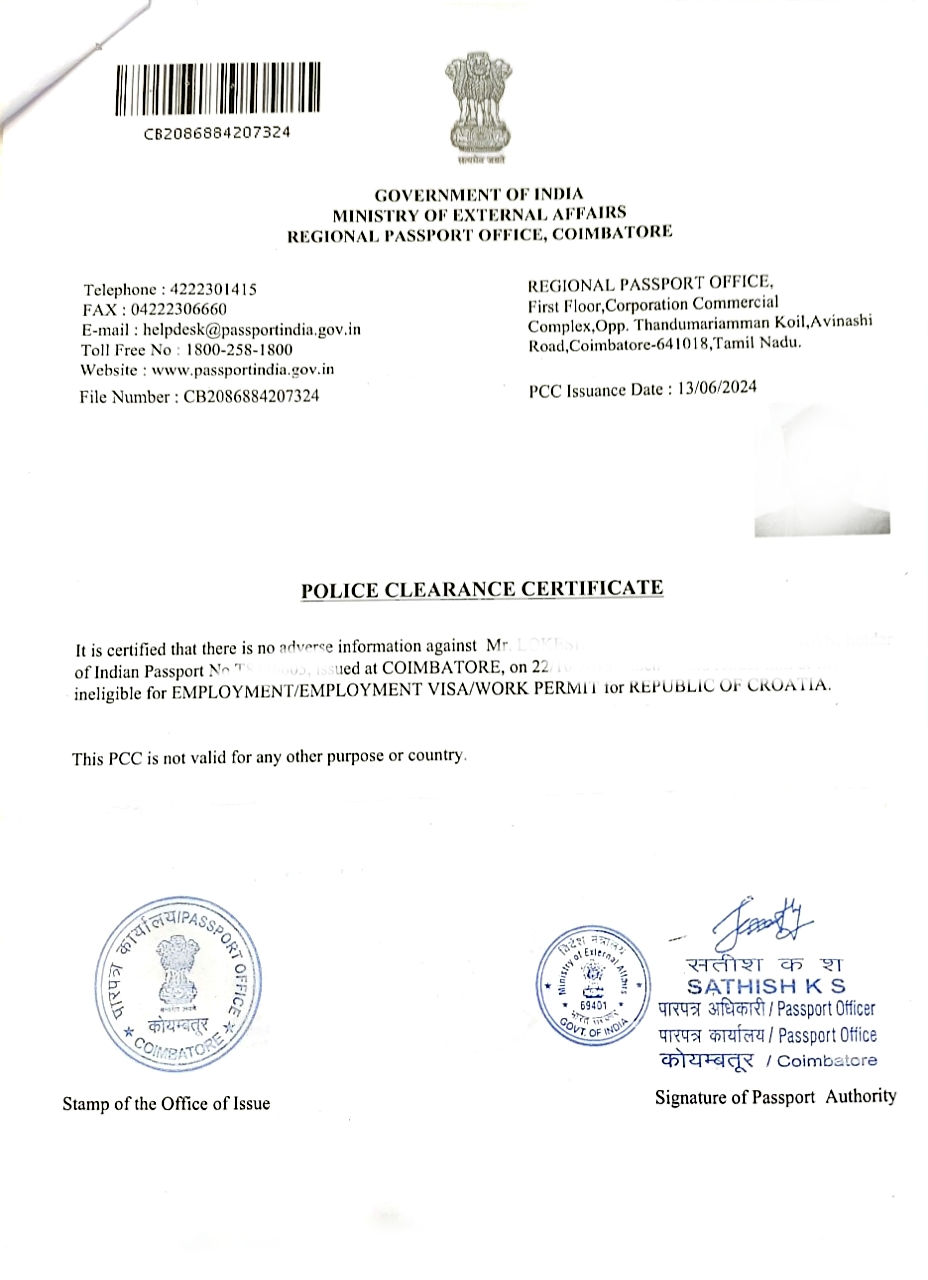The Police Clearance Certificate (PCC) stands as a foundational document in a variety of international and domestic procedures, serving as a formal attestation of an individual’s criminal history, or lack thereof, within a specific country or region. This certificate is often an indispensable requirement for those seeking to emigrate, pursue higher education abroad, gain employment in certain sensitive sectors, or finalize long-term visa applications. The necessity of a Police Clearance Certificate underscores the global emphasis on security and background verification, ensuring that individuals moving across borders or taking up positions of trust are duly screened. Understanding the intricacies of obtaining and utilizing this certificate is crucial for smooth progression through administrative and legal processes.

The utility and acceptance of the Police Clearance Certificate are widespread, making it a critical component of many application packages. For immigration purposes, consular offices and immigration authorities rely heavily on the PCC to assess an applicant’s suitability for residency or citizenship, forming a vital part of the comprehensive background check. Similarly, international academic institutions may request a Police Clearance Certificate as part of their admissions process, especially for courses involving work with vulnerable populations or security-sensitive research. Furthermore, professional licensing bodies in fields such as finance, healthcare, and education often mandate the submission of a recent PCC to confirm the good standing and trustworthiness of their prospective members, demonstrating its multifaceted importance.
The process for applying for a Police Clearance Certificate varies significantly depending on the issuing authority—typically a national police force, a designated government ministry, or an embassy/consulate if the applicant is residing outside their home country. While procedures differ, the core steps usually involve the completion of a detailed application form, submission of identifying documents such as a passport or national ID, and the provision of verifiable proof of residence. Fingerprints are frequently a mandatory requirement for a Police Clearance Certificate, used to conduct a thorough search against national criminal databases. Applicants must be meticulous in gathering the necessary documentation to avoid delays in processing, which can sometimes take several weeks or months.
A key aspect to consider is the period of time for which the Police Clearance Certificate is issued and its validity. Generally, a PCC confirms the applicant’s criminal record status up to the date of issuance. However, many receiving organizations will only accept a Police Clearance Certificate that has been issued within a specific timeframe, often six months, due to the need for recent information. Applicants are therefore advised to time their request for a PCC strategically, aligning it closely with their submission deadline for the main application (e.g., visa or job application). If an individual has lived in multiple countries beyond a certain threshold (e.g., six to twelve months), they will typically be required to furnish a Police Clearance Certificate from each of those jurisdictions to provide a comprehensive criminal history overview.
The official designation and terminology for the Police Clearance Certificate can also vary internationally, although the underlying purpose remains the same. In some countries, it may be known as a Certificate of Good Conduct, a Criminal Record Check, or a Judicial Record Extract. Regardless of the name, the document’s core function is to legally certify whether an individual has been convicted of, or is currently subject to, criminal proceedings. Understanding these nomenclature differences is essential when interacting with foreign government agencies or international bodies that might use region-specific terminology for the Police Clearance Certificate.
Challenges in obtaining a Police Clearance Certificate often arise when an individual is applying from overseas. Consular processing can introduce additional layers of complexity, requiring applicants to adhere to specific procedures for submitting biometric data (fingerprints) through authorized local channels. Furthermore, the final Police Clearance Certificate may need to be officially authenticated or legalized, often through an Apostille or a process of consular legalization, especially if the document is to be used in a country that is not a signatory to the Hague Apostille Convention. This extra step ensures the legal validity of the Police Clearance Certificate in the destination country.
In conclusion, the Police Clearance Certificate is far more than a simple formality; it is a critical instrument of global due diligence and background verification. Its necessity permeates the realms of immigration, international employment, and education, acting as a standardized and legally recognized testament to an individual’s past conduct. Prospective applicants must approach the process with diligence, ensuring they adhere to the specific requirements of the issuing authority and the accepting institution. A well-prepared and timely application for a Police Clearance Certificate is a foundational step toward successfully navigating international administrative requirements, underscoring its pivotal role in the modern, interconnected world. The increasing demand for this document reflects a continued global commitment to maintaining public safety and integrity across borders.

